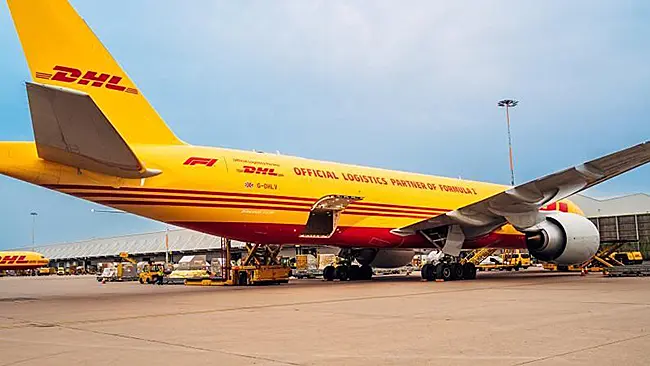In a world increasingly aware of the environmental impact of human activities, major corporations and industries are stepping up to the challenge of sustainability. DHL and Formula 1 (F1) have taken a significant step in this direction by adopting sustainable aviation fuel (SAF). This milestone not only underscores their commitment to reducing their carbon footprint but also sets a precedent for other industries to follow.
Understanding Sustainable Aviation Fuel
Sustainable aviation fuel, or SAF, is a game-changer in the aviation industry. Unlike traditional jet fuel, which is derived from fossil fuels, SAF is produced from renewable resources, such as plant oils, agricultural residues, or even waste materials. This not only makes SAF a more sustainable option but also significantly reduces the lifecycle carbon emissions associated with aviation fuel. By switching to SAF, DHL and Formula 1 are making a tangible difference in their environmental impact.
The Role of DHL in Sustainability
DHL, a global leader in logistics and express delivery, has long been committed to sustainability. The company’s “Mission 2050” aims to reduce all logistics-related emissions to zero by 2050. This ambitious goal requires innovative solutions and a steadfast commitment to environmental stewardship. The adoption of SAF is a significant part of this strategy, as aviation is a major contributor to DHL’s carbon footprint. By incorporating SAF into its operations, DHL can significantly reduce its emissions, bringing it closer to its sustainability goals.
Formula 1’s Sustainability Drive
Formula 1, known for its high-speed racing and technological innovation, is also making strides in sustainability. The organization’s “Sustainability Strategy” aims to have a net-zero carbon footprint by 2030. This includes measures such as hybrid power units for the cars, improved logistics, and sustainable materials for car production. The partnership with DHL to use SAF is a crucial element of this strategy, as it addresses the significant emissions associated with transporting the F1 circus around the globe.
The Logistics of SAF Implementation
Implementing SAF in the operations of DHL and Formula 1 is no small feat. It involves complex logistics, from sourcing the fuel to integrating it into the existing supply chain. DHL has partnered with leading SAF producers to ensure a steady and reliable supply of the fuel. This partnership is essential, as the availability of SAF is currently limited compared to conventional jet fuel. By investing in these partnerships, DHL is helping to drive demand and stimulate production, making SAF more accessible for the broader aviation industry.
Benefits Beyond Carbon Reduction
The benefits of SAF go beyond just reducing carbon emissions. The production of SAF often utilizes waste materials or non-food crops, which can help to alleviate the pressure on food resources and reduce waste. Additionally, SAF can contribute to energy security by diversifying the sources of aviation fuel. For communities and regions that produce the feedstocks for SAF, this can also mean economic benefits and job creation.
Innovative Technologies and Practices
The shift to SAF is part of a broader trend of technological innovation and sustainable practices in both DHL and Formula 1. For DHL, this includes the development of electric and hybrid delivery vehicles, investment in energy-efficient warehouses, and the use of renewable energy sources. For Formula 1, innovation is at the heart of its operations, from the hybrid engines that power the cars to the cutting-edge materials used in their construction. The use of SAF is another example of how these organizations are leveraging technology to drive sustainability.
Challenges and Future Prospects
Despite the many benefits, the adoption of SAF is not without its challenges. One of the primary obstacles is cost. Currently, SAF is more expensive to produce than conventional jet fuel, which can be a barrier to widespread adoption. However, as production scales up and technology improves, the cost is expected to come down. Another challenge is the limited availability of SAF, which is why partnerships and investments in the supply chain are so crucial.
Looking to the future, the prospects for SAF are promising. Advances in technology are making the production process more efficient, and increased investment is driving greater availability. As more airlines and logistics companies adopt SAF, the industry will likely see a shift towards more sustainable aviation practices. DHL and Formula 1 are leading the way, but their success could inspire others to follow suit.
Collaboration and Industry Impact
The collaboration between DHL and Formula 1 highlights the importance of partnerships in driving sustainability. By working together, these organizations can share resources, knowledge, and expertise to overcome challenges and achieve their sustainability goals. This collaborative approach can serve as a model for other industries looking to make a positive environmental impact.
The adoption of SAF by DHL and Formula 1 also has broader implications for the aviation industry. As major players in logistics and sports, their commitment to SAF sends a powerful message about the importance of sustainability. It demonstrates that even industries with high emissions can take meaningful steps to reduce their environmental impact. This could encourage other companies to explore and adopt sustainable practices, leading to a more sustainable aviation industry overall.
A Sustainable Future for Logistics and Motorsport
In conclusion, the adoption of sustainable aviation fuel by DHL and Formula 1 marks a significant milestone in their respective sustainability journeys. By leveraging the benefits of SAF, these organizations are reducing their carbon footprints, driving technological innovation, and setting a positive example for others to follow. While challenges remain, the commitment of DHL and Formula 1 to sustainability is clear, and their efforts are paving the way for a more sustainable future in logistics and motorsport. As they continue to innovate and collaborate, the impact of their sustainability initiatives will only grow, contributing to a greener, more sustainable world.
Citation
https://biodieselmagazine.com/articles/dhl-and-formula-1-take-flight-with-saf
